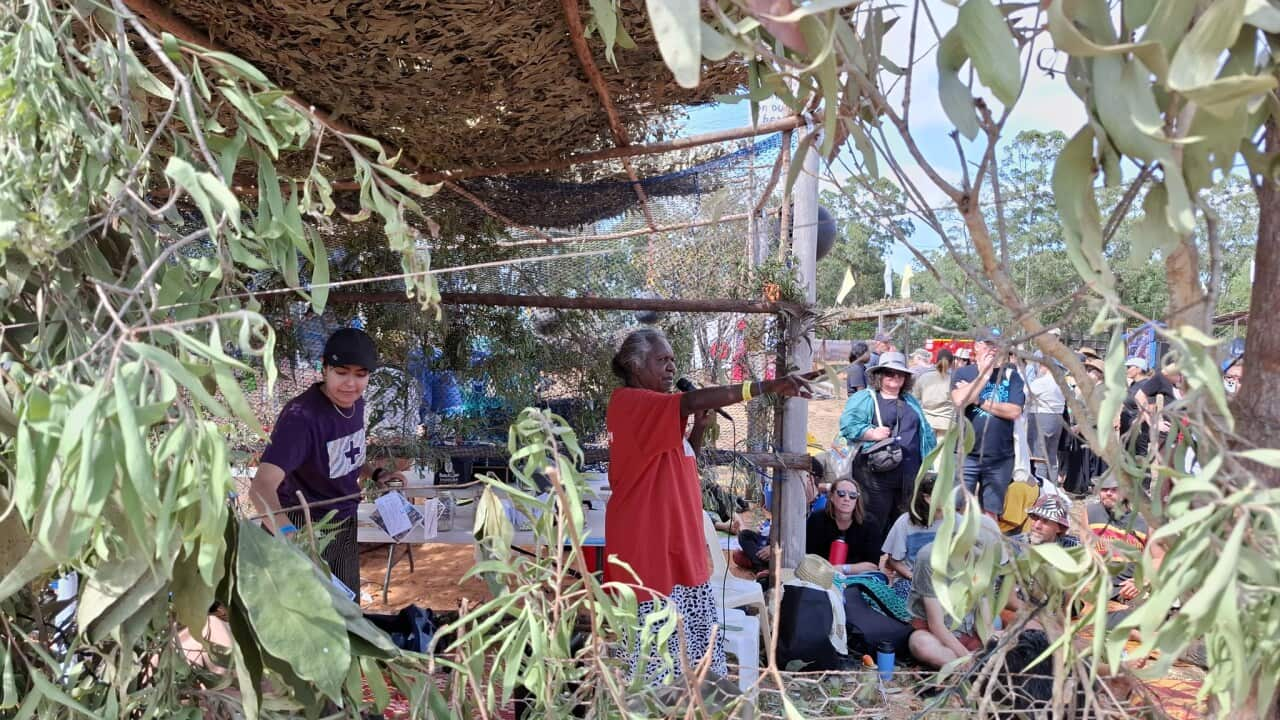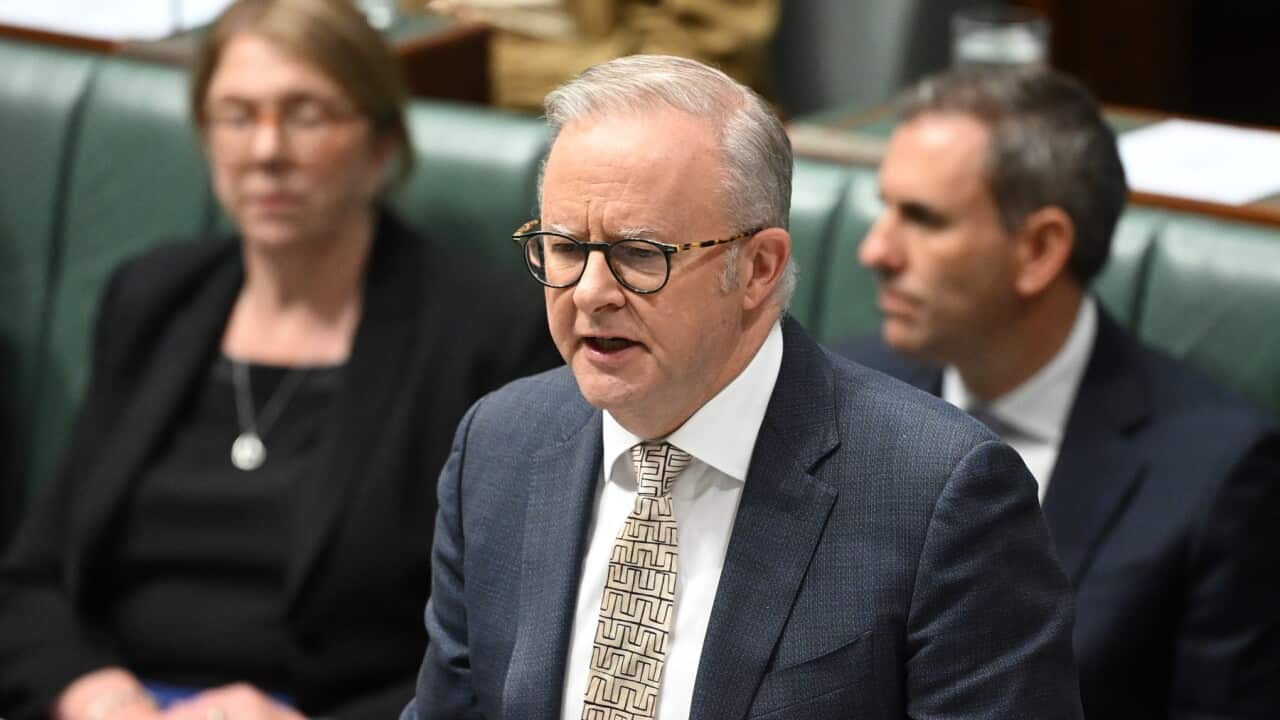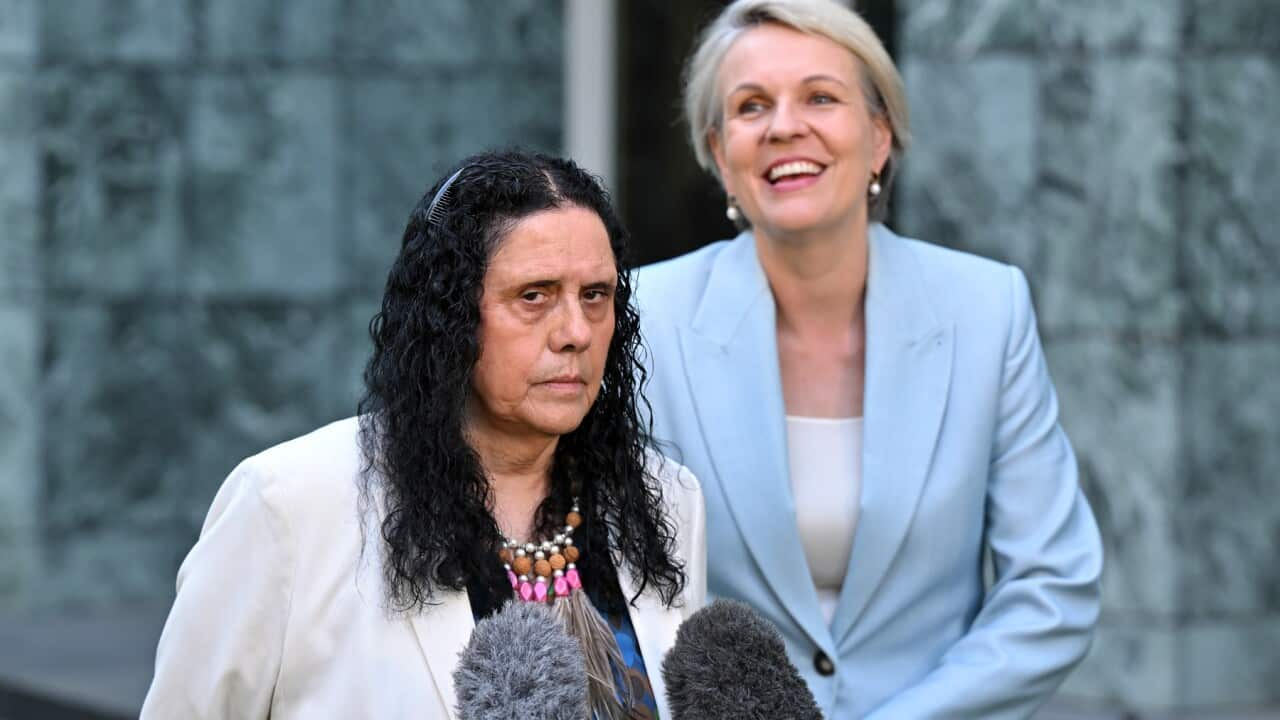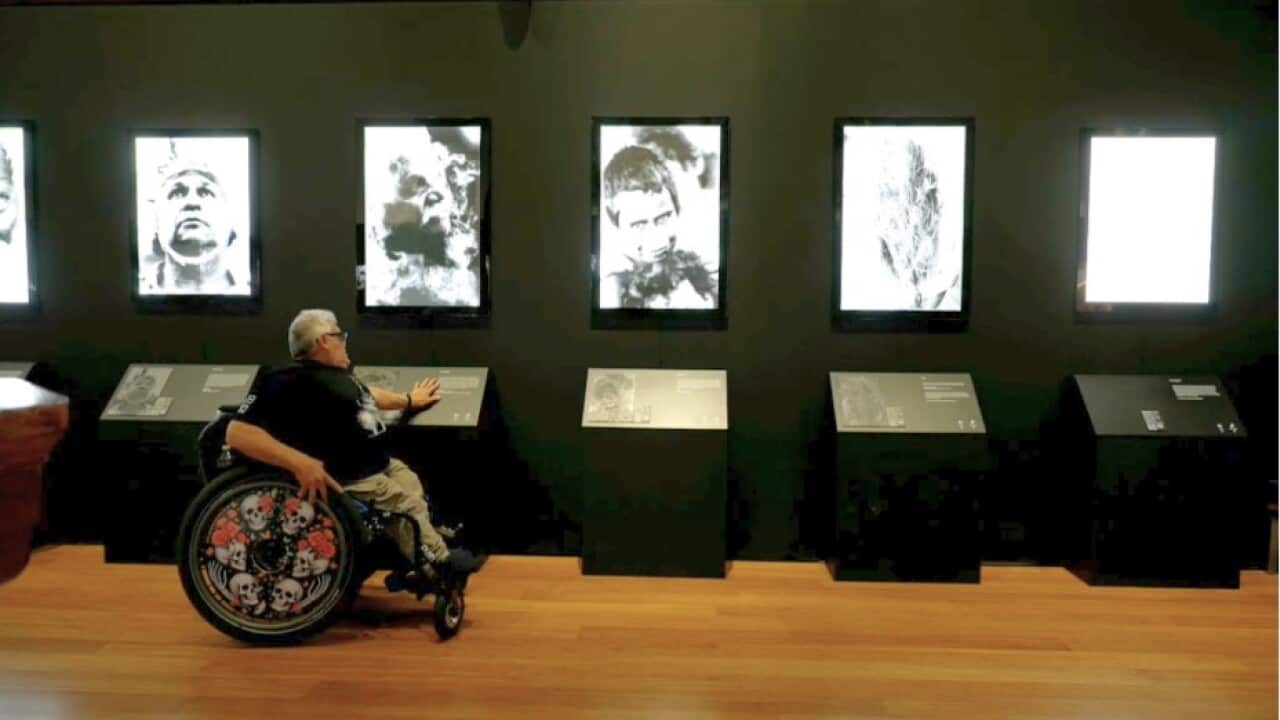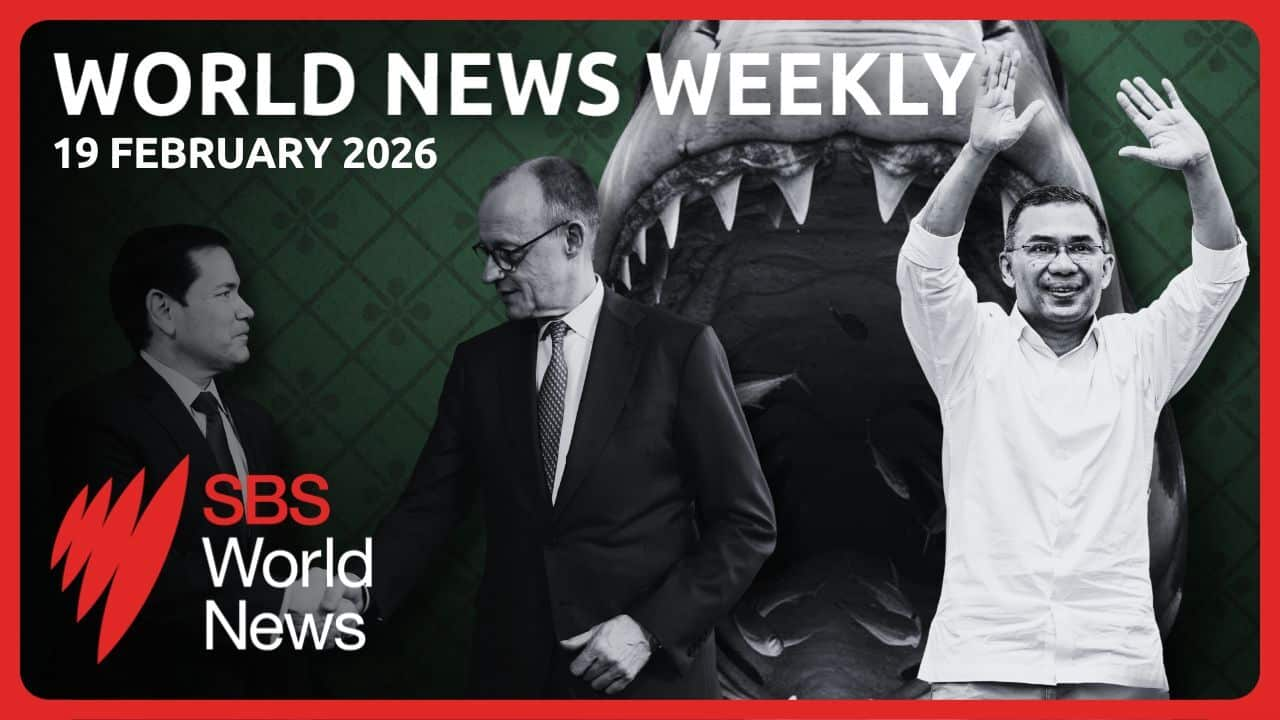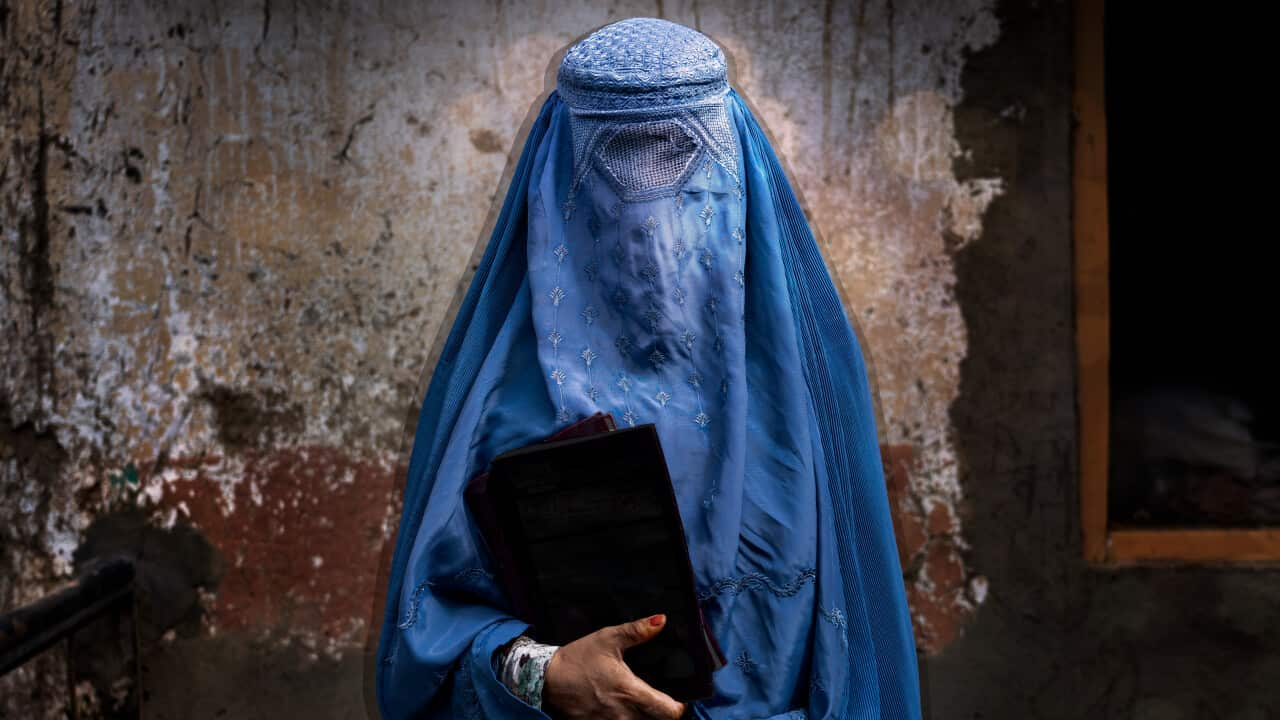Listen to Australian and world news, and follow trending topics with SBS News Podcasts.
TRANSCRIPT:
"(Yolngu dialect phrase) ... I will say Gululu, Gululu, Gululu. Which means welcome, welcome, welcome to this beautiful land of ours."
On-country in the Northern Territory's northeastern Arnhem Land region, Yolngu elder Mayalil Marika is sharing her knowledge of bush medicine with students close to graduating from university.
It's a visceral learning experience - using the senses to learn: smelling, tasting and listening.
Mayalil Marika: "(Yolngu dialect phrase)...it's bush medicine. We eat them, raw or we make juice. And it's for flu. Any flu. And, have a smell... "
Student: "It's very strong."
Mayalil Marika: "It is very strong. It's bush medicine."
The students learn the Indigenous names for the plants and their uses - knowledge that is closely connected to the land and the oral traditional of learning.
"The (Yolngu dialect name for a specific tree) trees are here. It is everywhere. The outer bark is used for painting. Maybe you have come across the paintings around the camp, the shelters? It is used from (made from) bark. But it is the inner part that was used when we had the COVID, flu, itchy throat. Your whole body. It can heal you. And it goes real deep. But you will have a taste of it."
The students are part of a bush medicine two-way learning program run through Flinders University in South Australia.
The learning can take last for six weeks or six months.
Mayalil Marika says she sees her teaching as an important way of keeping First Nations knowledge and culture alive for future generations.
"It is the stories of the waterways. The fresh water and the salt water. And the songlines that are connected to each and every tree. Everything blends."
A final year nursing student at Flinders University, Wiradjuri woman Sarahjane Salmon says it has been an honour to learn about Yolngu ways of health and healing.
"The wisdom is beyond anything you can imagine. It is amazing being able to go out - and go out bush - and listen to their stories and their families; and their history. And it is amazing. There is no experience like it. And I feel so grateful to be part of it, yeah."
She says the perspective is something she will inform her approach to treating patients going forward.
"I believe that nursing and health science and medicine is all about patient-centred care and holistic care. So being in community and really bonding and connecting with community from the roots is where it starts; and how you make those relationships and connections."
Physiotherapy student Tameka was able to join the program as part of partnership with the University of Canberra.
She says the experience has been eye-opening.
"There is a couple of programs. There is a lot of chronic kidney disease. So just over this weekend, I have met people that doing research in renal disease - and through that I have now got research papers that have been made and done on Indigenous community to prevent renal failures. And how to keep them active while doing dialysis and things. So just this event - with the networking and meeting new people. And having a yarn to different people has just been so great in so many different aspects."
Compared with the general population, Aboriginal and Torres Strait Islander peoples are five times more likely to develop kidney disease; and four times more likely to die from kidney disease.
Tameka says she will be taking the insights into her final placement at a hospital in Canberra.
"It has just been a completely different way of treating. You've got the clinical side of the way we've been taught; and the way we think and things like that. But having to bring that into the culture aspect has been really interesting. Understanding the difference between the men and women and the way they function together and separately. And what can and can't be done together, is just incredible. And trying to work out different ways of how to interpret that; and how to get it working within the community."
Larrakia traditional owner Richard Fejo is the senior elder on campus at Flinders University.
As a member of Stolen Generations, he is passionate about improving the health outcomes of Indigenous Australians, who die between - on average - between 8 and 9 years** earlier than the wider population.
He says he has taken immense joy out of seeing the students graduate with bush medicine knowledge.
"I think it is really important to actually demonstrate that. We actually have a beautiful culture. So out here Yolngu talk a lot about kinship. And this is a system that most Australians are unaware of. But through the systems we are able to interact better with Aboriginal people and Aboriginal patients. And if a doctor has an understanding of this, we are then setting a standard that can be applied across the board in different disciplines for better interactions with Aboriginal people, amounting to better outcomes across the social determinants of health."
And he says he is already seeing change.
"And everything we're doing here in the cultural space is about improving the doctor-patient relationship. This is how we contribute to making better health outcomes. A complete different - and new class of doctor. So one of them was telling me a story about an Aboriginal patient who was in Adelaide. They didn't know how to talk with the Aboriginal person who wouldn't talk to them. So this doctor who did this program just sat down and started talking softly and gently, saying what's your name, where are you from, who she was, where she is from. And then the patient had a different encounter - and that allowed the patient to open up. And I think that is really important with this program, a lot of the students get to reflect on themselves and their culture. And what is key here is communication. And how we can improve communication - verbal and non-verbal as well."
